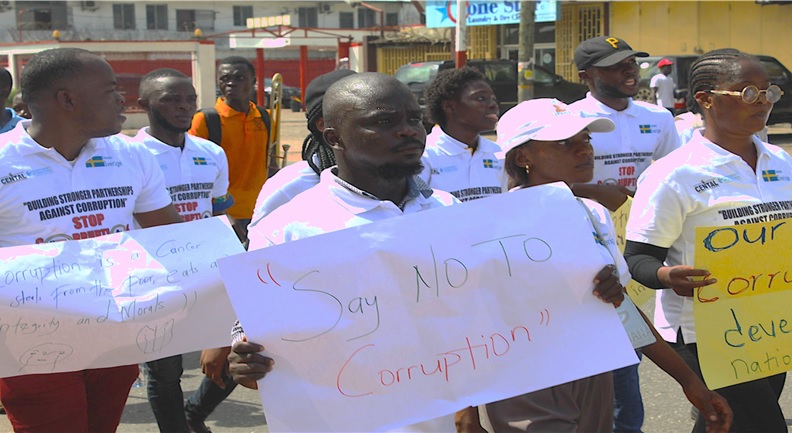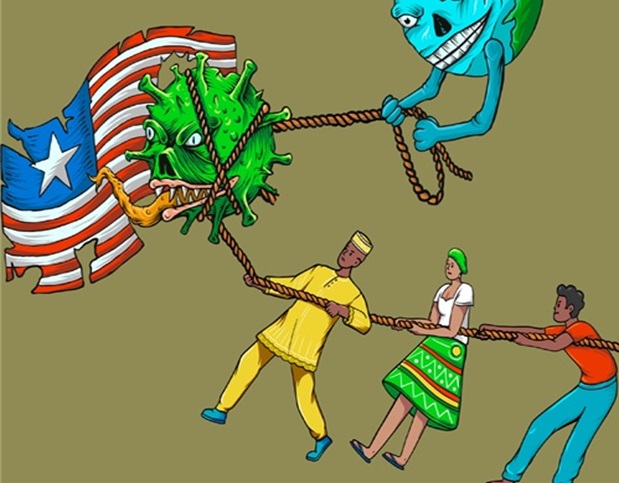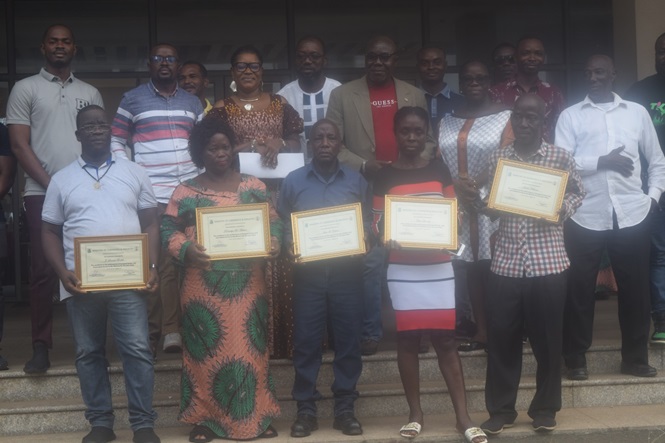MONROVIA – The Center for Transparency and Accountability in Liberia (CENTAL) has released its State of Corruption Report (SCORE) for the year 2022 today.
The report disclosed key findings… Respondents in the report indicated that the level of corruption in Liberia remains high.
CENTAL, a civil society organization that has led and sustained active civil society engagement with integrity-building and anti-corruption efforts in Liberia disclosed that 93 percent of females think corruption is high as compared to 88 percent of males.

CENTAL’s State of Corruption Report further disclosed that 90% of the key reasons cited include allegations of rampant corruption and lack of prosecution. In a previous report, the report disclosed that 90 percent also cited corruption as being high.
The report also finds Government’s commitment to fighting corruption remains low of those surveyed hold the view that the government’s commitment to fighting corruption is low with a 14 percent rate, with 62% government’s commitment as moderate.
With another 14 percent rate, the corruption report disclosed that the government’s commitment is as high. The remaining nine percent, according to CENTAL, did not have any rating. Accordingly, the report narrated that in response to a similar question during the last survey, 66 percent held that the government was not committed.

The report further disclosed that over two-thirds of respondents witnessed corruption of respondents said they witnessed the public sector, with 70% percent witnessing bribery followed by extortion and 38 percent corruption over the last 12 months.
Of these, 63 percent, the report narrated that this year’s result represents a 6% decline in the number of respondents who witnessed corruption compared to 76 percent in the previous report.
In the Public services, the report disclosed an increasingly prone to corruption of respondents said police services are more prone to corruption compared to 56 percent in the previous survey.
CENTAL’s report disclosed that 60 percent cited medical services as more prone to 69% corruption compared to 57 percent in the previous report, while 36 percent cited court services as more prone to corruption compared to 28 percent in the previous report.
Also, the report stated that confidence in public institutions declined of respondents have confidence in the Executive to fight corruption compared to 30 percent in the previous report to 24 percent in the previous report, while the report indicated that 22 percent have confidence in the Legislature compared have confidence in the Judiciary compared to 28 percent in the previous report.
The decline in the number of persons paying bribes of respondents reported paying a bribe as compared to 46 percent in the previous year, the report showed an eight-38% percent decline in the practice.
57 percent of those who paid bribes are males, while the report indicated that 43 percent are females. Also, the report said 40 percent of males interviewed paid bribes, while 35 percent of females paid bribes.
Poor administrative and criminal accountability Triangulated views and responses from respondents highlighted that administrative and criminal accountability are the weakest links in the fight against corruption, according to the report, with the President unwilling to take administrative or legal actions against public officials accused of corruption, the report indicated.
The report disclosed that public integrity institutions remain underfunded, with overall, the report stated that financial resources allocated to integrity institutions in the national budget are not substantial to enable them to implement comprehensive programs in the fight against corruption such as the hiring of competent and experienced lawyers by the LACC to prosecute cases.
CENTAL’s report further stated that the judiciary is subject to occasional interferences and plagued by bribery, disclosing that the Judges are occasionally subject to pressure from the executive in matters involving politically prominent individuals.
Traditional secret societies, according to the report, are also interfering with judicial functions, noting that Magistrates and judges assigned in rural areas are expected to rule in favor of members or face consequences including abduction and conscription.
Also, the report revealed that bribes are sometimes solicited by judges to grant bail to detainees or try cases.
CENTAL’s State disclosed that the National budget is still manipulated as a tool for corruption, with public resources, according to the report, continuing to be channeled through questionable budgetary allocations for the benefit of public officials.
For instance, the report disclosed, for the second year running, the Legislature is allocated a whopping US$3.6 million to undertake development and related projects—a clear assumption of executive function. There are no accountability requirements around said expenditures.
Note: For more details on CENTAL’s State Of Corruption go to www.cental.org.lr







